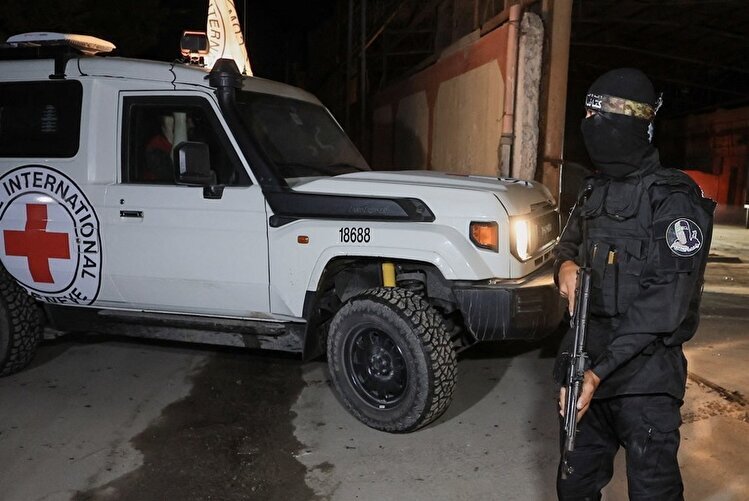Occupier Regime Is Terrified of the Presence of Hamas Fighters in the Gaza Strip
TEHRAN (Defapress) - As the ceasefire between Hamas and the Zionist regime approaches its one-month anniversary, the regime announced that it had received the bodies of 3 more Zionists. Hamas had previously announced in a statement that these bodies were found in the tunnels of southern Gaza on Sunday.

Since the ceasefire began, Palestinian forces have handed over the bodies of 17 prisoners, and the search for the bodies of 8 more prisoners is currently ongoing. During this period, Hamas has handed over one or two bodies every few days. The occupation regime has called for the process to be expedited, and in some cases has said that the bodies handed over did not belong to any of the prisoners. Hamas has also said that the process of identifying the bodies is very difficult due to the widespread destruction in Gaza.
The Israeli army has said that it will inform the families of the bodies as soon as they are identified. The families of the Israeli prisoners continue to hold regular weekly protests. At a rally in occupied Quds on Saturday night, demonstrators called for restraint from Israel and for new hostilities.
In exchange for receiving the body of an Israeli prisoner, the Zionist regime has released the remains of 15 Palestinians. Health authorities in Gaza are facing difficulties in identifying the bodies due to a lack of DNA testing kits. According to the Gaza Health Ministry, of the 225 bodies received since the ceasefire began, only 75 have been identified. The ministry has released images of the bodies so that their families can identify them.
It is not yet clear whether the deceased Palestinians died inside Gaza or were killed by the occupying army during the war. The exchange of bodies was a central part of the first phase of the US-brokered ceasefire. The 20-point plan includes the formation of an international peacekeeping force with the participation of Arab countries, which, in cooperation with Egypt and Jordan, will be responsible for securing Gaza's borders and monitoring the implementation of the ceasefire.
Many countries have expressed their readiness to participate in the formation of this peacekeeping force, but at the same time, they are demanding official authorization from the UN Security Council before sending forces. The fate of Hamas' weapons, how to govern Gaza after the war, and how to send humanitarian aid are among the controversial issues.
The Israeli prime minister announced on Sunday that sections of Hamas are still present in the Israeli-controlled areas of Gaza - the Yellow Zone. Benjamin Netanyahu said at a cabinet meeting: "There are two areas in Rafah and Khan Yunis that must be destroyed."
According to the Gaza Health Ministry, Israel has killed more than 68,600 Palestinians in Gaza, which has been accused of committing genocide in Gaza by the UN Commission of Inquiry and other bodies.
